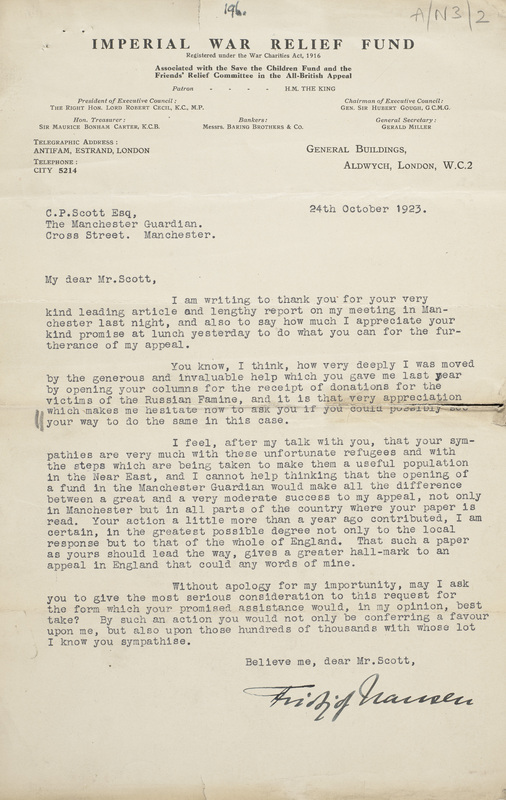Humanitarianism
Under the editorship of CP Scott, the Manchester Guardian established itself as a moral voice condemning unjust war, supporting victims of conflict and championing global humanitarian causes. It was the only major newspaper to challenge the imperial ambitions of the British government in southern Africa during the Boer War (1899-1902).
Despite the government’s policy of non-intervention, the Guardian committed itself to reporting the plight of civilians during the Spanish Civil War (1936-1939). Unusually for the time, female correspondents submitted first-hand reports on the desperate situation of women and children in both South Africa and Spain. Emily Hobhouse and Nancy Cunard took personal risk reporting from war zones.
Letter from LT Hobhouse to CP Scott
Manchester Guardian journalist, LT Hobhouse, introduced his sister to CP Scott in November 1900. Her accounts, printed in the Guardian, exposed how the Boers (settlers of Dutch descent) were evicted from their farms and placed in concentration camps.
Ornamental page-turner
Boer prisoners of war, held captive by the British in Ceylon (now Sri Lanka), were grateful for the Manchester Guardian’s support. They presented this wooden newspaper page-turner as a token of their appreciation.

